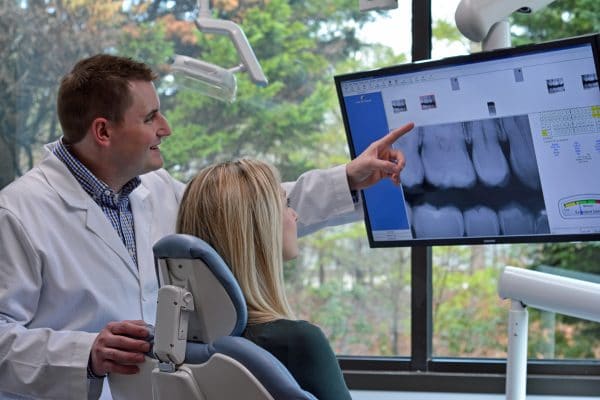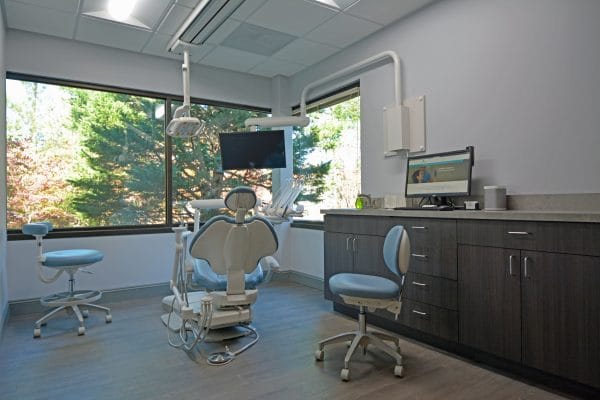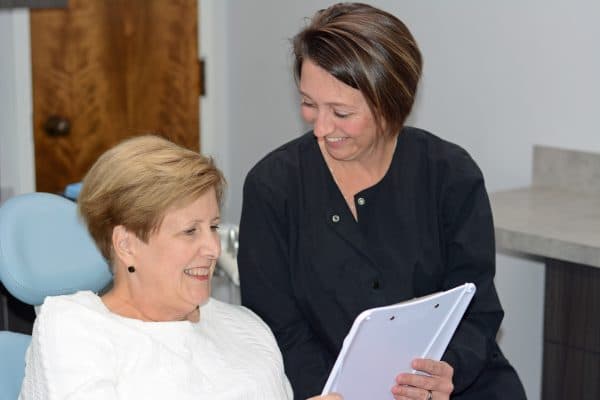Tooth Extraction Emergencies
Dental emergencies always seem to come at a most inconvenient time and can happen in the blink of an eye. Whether you took a spill and landed face first or were trying to pull your winter gloves off with your teeth (happens more that you think!), when you break a tooth or are experiencing sudden extreme pain, getting to the dentist as quickly as possible becomes priority number one!
Self Care and Dental First Aid
There are a few steps you can take to help relieve pain and possibly prevent more extensive damage. Here are a few symptoms and the step to take to help relieve them:
- Pain: if you are experiencing dental pain, an NSAID, such as Advil, is usually a better pain reliever than Tylenol; if you cannot take an NSAID take Tylenol. Take any medication only as directed according to the instructions on the package.
- Swelling: an ice compress on the area will help the inflammation
- Bleeding: using gentle pressure, apply a piece of sterile gauze to the area; if the bleeding is severe or does not stop, visit an urgent care or the ER.
- Lost restorations: if a filling or crown comes out, try to see your dentist as soon as possible; it is best to have a crown recemented within 24 hours even if you aren’t having any discomfort. Denture adhesive is a great product to temporarily hold crowns and bridges in place. A lost filling will likely need to be replaced altogether and will need to be tended to as quickly as possible as well. Unrestored teeth can crack and break so it is very important to get to your dentist as soon as you can!
- Lost tooth: accidents happen! If you are suddenly without a tooth, rinse your mouth and the tooth with warm water and doing your best not to touch the root of the tooth, try to place it back into its socket. If you are unable to put it back in, place it in a cup of milk. Then get to your dentist as soon as possible.
Emergency Dental Care
Depending on your specific emergency, you may be able to be treated in one visit to your dentist’s office. More severe problems may require a treatment plan to be corrected. Some treatments include:
- Use of medication: if you have an infection or abscess causing you discomfort, antibiotics can be prescribed to eradicate the infection; further treatment may be required in the form of a root canal.
- Composite bonding: a chipped tooth is usually a quick fix using tooth colored bonding. If you have chipped a front tooth, the bonding will be a temporary fix, lasting anywhere from a few days to a few years. The longevity of anterior bonding depends on each patient’s bite and nighttime grinding or clenching.
- Tooth extractions: keeping your natural teeth is important so all steps possible will be made to restore a tooth before it is deemed hopeless. Extractions are advised if the tooth is damaged or decayed beyond repair. Extracting a hopeless tooth is the best option for the health of the rest of your teeth. Restoration options for the area will be discussed after you are relieved of the offending tooth.





High-Quality Dental Care
At Cornerstone Family Dentistry in Chapel Hill, all our services are performed with the patient in mind. We want you to feel comfortable in the dental chair, confident in our work, and most importantly, we want you to fall in love with your smile again. If you would like to schedule an appointment or if you have any questions about cosmetic procedures that we offer, please contact us at (919) 595-1010.
